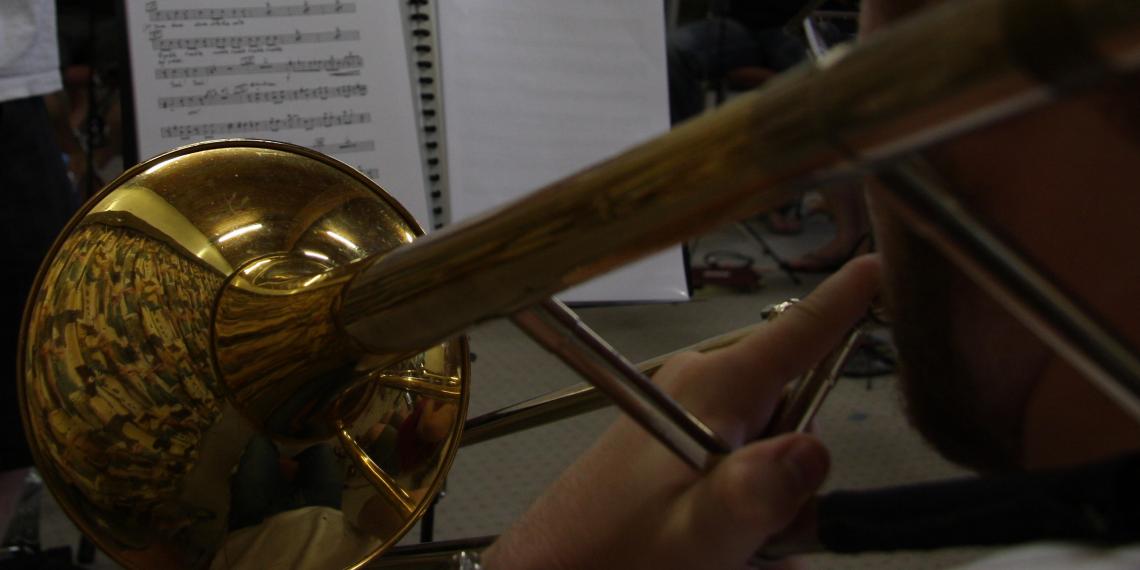7 Effective Practice Routines for Brass

Over many years of playing brass I think that my rehearsal time has been largely wasted time. I have always loved to play so that is the way I have approached my rehearsals.
Academics will say you must rehearse in a systematic way and I have tried that. It is dead boring and over time becomes a chore — there are many ways to skin a cat, or many ways to achieve your desired outcome.
Before I delve into rehearsal technique, I want to mention embouchure (the placement of your lip on your mouthpiece), and the issues I have had with mine. When I was a keen teenager I practiced heaps and it was only ever about technique - playing faster and higher. At that time my lip was positioned off centre and. This was my natural embouchure. When I was accepted into the Navy band with professionals I was advised to change my embouchure. I went through turmoil for about a year until it clicked into place. But over the years it has changed. I have tweaked it and now think it is the best it has ever been. I am now playing I the centre with a fraction over 50% on the top lip which suits me. Many brass players have had similar issues but whatever the advice is for you think carefully before changing anything drastically. You could be heading down a path of anxiety and disappointment.
Now back to rehearsal technique. I guess I have learned what works for me as far as rehearsing goes. Firstly I have realised there are no short cuts. There is no substitute for time spent working on your craft. You have to do it regularly and intentionally. As you improve and start to master your craft the desire will grow to want to rehearse.
Here are some hints that will help you in your quest.
1. Work on what you find difficult:
Let’s face it most of your band music you can play. Don’t play just for the sake of it. Rehears mainly those passages that you cannot play or are having difficulty with. Here is how you do that.
2. Slow it down use a metronome:
Slow the passage down so you can play it. You may be way off the desired tempo - don’t worry. Repeat over and over until you are comfortable at the slow tempo then slowly increase the tempo.
3. Chop large difficult sections up in to digestible shorter ones:
Sometimes there will be whole sections that are hard to play. The same principle applies but do not attempt to learn the whole section at once. Learn 4 – 8 bars at a time using the same technique as above.
4. Problems with rhythms?
If you are having problems with a rhythm, the same principle applies. Slow it down! If you need to, chop up the passage and then put it together when you've mastered all the segments. Also, taking musical ties off can make the rhythm easier when learning. Put the ties back on once you're comfortable and slowly speed up.
5. Improve overall technique, especially areas of weakness:
There are many tutor books out there for all instruments. For brass the best all round tutor is the Arbans tutor. This tutor touches on all the technical aspects of brass playing. I substitute it with a good lip flexibility tutor.
6. Learn your scales off by heart:
Make learning and playing scales a part of your daily practice. Once you master both major, minor and Chromatic scales you find them in all music. There are many ways they can be rehearsed that is up to you.
7. Practice like a virtuoso:
Get your hands on as many solo pieces that you can. Use them as a part of your daily rehearsal. Always work on something that is just beyond your ability.
Remember practice should be fun. Here some ideas on how to break up your rehearsal into the elements mentioned above.

